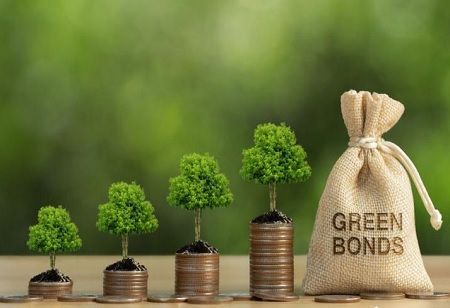
APEC Firms Suggest New Climate Bonds and Carbon Credit System

 Business executives in the Asia-Pacific region have recommended that emerging economies issue climate bonds indexed to a basket of currencies to mitigate risks associated with foreign exchange fluctuations when raising funds for clean energy transitions. The group, which includes members of ABAC (APEC’s Business Advisory Council), also suggested initiating a pilot program to establish a voluntary carbon market (VCM) for the region.
Business executives in the Asia-Pacific region have recommended that emerging economies issue climate bonds indexed to a basket of currencies to mitigate risks associated with foreign exchange fluctuations when raising funds for clean energy transitions. The group, which includes members of ABAC (APEC’s Business Advisory Council), also suggested initiating a pilot program to establish a voluntary carbon market (VCM) for the region.
“What we’re trying to establish is an interoperable, or mutually tradeable, voluntary carbon credit network within the Asia-Pacific region that can accelerate the region’s transition to a low-carbon society”, Hiroshi Nakaso, head of ABAC’s finance and investment task force, said. Under the program, like-minded countries will conduct cross-border carbon credit transactions on a trial basis to identify problems and possible solutions, Mr. Nakaso said.
The Asia-Pacific region lacks cross-border standards or regulatory infrastructure for a voluntary carbon market, a mechanism that channels private financing into climate projects. The proposals, compiled at a meeting in Tokyo on Aug. 1-4, underscore a growing awareness in Asia about the need for private and public sectors to cooperate in financing the huge cost of energy transition.
ABAC, the advisory council of the Asia-Pacific Economic Cooperation (APEC), will present its recommendations at the APEC leaders' summit in Lima this November. Peru will host the event as this year's APEC chair, which includes a bloc representing nearly half of global trade. Among its proposals, ABAC has urged regional governments to issue 10-year bonds with interest and principal payments indexed to a basket of currencies.
Tom Harley, a project leader from Australia on the task force, explained that these bonds would provide developing nations with hard currency to invest in solar farms and storage facilities while reducing exchange-rate risk for lenders. Asia, being highly susceptible to climate-related natural disasters, also has many economies dependent on fossil fuels or exposed to currency market fluctuations, which intensifies the challenges of transitioning to clean energy.

